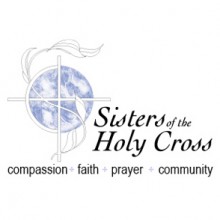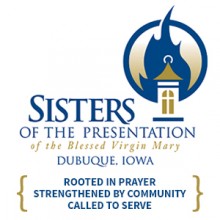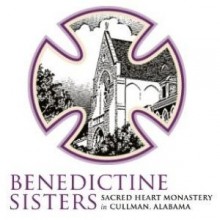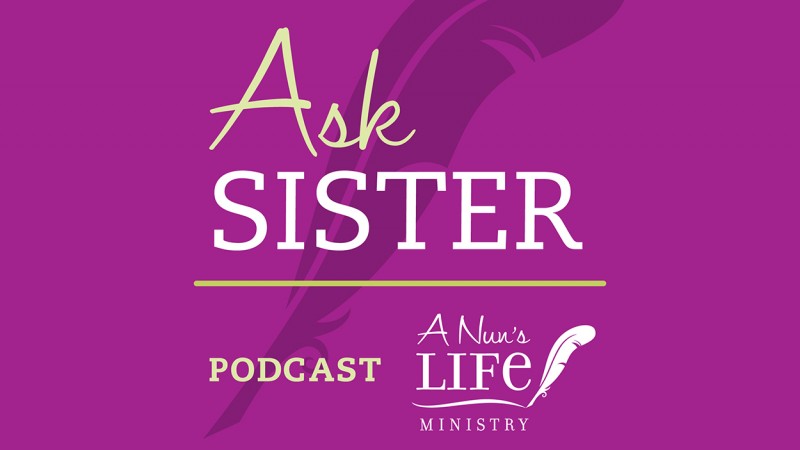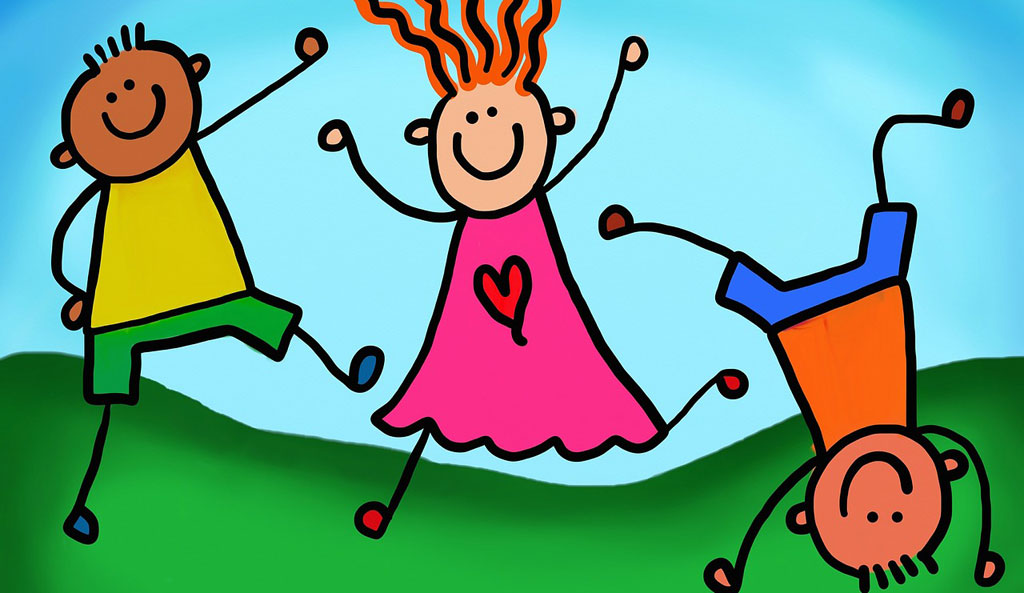
This clip is from our Ask Sister podcast episode 114, recorded live on July 11, 2012. Hear the full podcast at AS114.
Sister Maxine
This Random Nun Clip is brought to you by A Nun's Life Ministry. So our first question, it comes in from Brian by email. And Brian asks, "As long as I try to live God's will, is that enough to please God? Or does it not count unless I do it with joy, and free of doubt and other negativity?"
Sister Julie
I love this question because joy is not my first language. You know, I am not the most like, "Woohoo!!" kind of person. And so I hope that the answer that we come to isn't that we have to be joyful, because that's a hard thing to sustain.
Sister Maxine
Right. And I think that these kinds of emotions are getting a bad rap. You know, I don't think a person has to be joyful all the time. And that doesn't make it like a negative emotion.
Sister Julie
That's true. I mean, there are many other ways of being in the world that aren't just joy.
Sister Maxine
Right, and it can be situational.
Sister Julie
Yes, it could.
Sister Maxine
Joyful, sometimes, not so much others. One of the overarching questions that I hear from Brian here, though, is what pleases God. And there's a conundrum. Because it says, if we try to live the will of God -- which presumes we can know God's will -- will that please God ... but I don't know that we can know God's will.
Sister Julie
Well, I think God is pretty cool as far as God goes, in the sense that, I think our very existence -- God loved us into being. And so the very fact that we exist is pleasing to God. And I would think -- and again, this is a little anthropomorphizing God -- but I would think that if someone that I loved was happy or was peaceful, or was content, that would make me happy. Now, I know God is not fickle, like we are as human beings. But I would think that God would want the fullest for us. Joy is an interesting thing. I mean, joy is not like a regular way of being. It's one of those kind of mountain moments, I would say. It's a very hard emotion to sustain. And as you said before, there's a whole range of emotions that, just because it may not feel like joy, doesn't mean that it's necessarily negative or displeasing to God.
Sister Maxine
Now, you mentioned a mountain moment and Joyce Elaine said, "Thomas Merton said, 'I believe that the desire to please You -- to please God -- does, in fact, please God.'"
Sister Julie
Well, and thank God for that. Because, you know, there are a lot of times in my life where things don't work out so well. Or, you know, you're just having a bad day. And probably like in the back your mind, you're like, "I wish I could respond better this," or, "I wish I had a better outlook." And sometimes just that desire, and kind of just giving it over to God and being like, "You know, I can't really muster up much of a positive thought right now. So I want to please you, but you're gonna have to give me a hand or just be okay with where I'm at right now."
Sister Maxine
In the chat room, Julia said, "I think about doing something that I don't want to do. Just because it might not make me want to do cartwheels doesn't mean that I can't bring some joy to it." Even things that we may not want to do, if we know that it's something that we're meant to do, that would be good for us, it would be good for people around us -- we don't necessarily have to like it.
Sister Julie
This is true. But again, what are the other emotions that we can engage in? Like, I mean, Julia here might be referring to altruism, like a desire to be able to be there, for friends or for someone else. It might be fascination. There are some things that don't bring me joy -- even if they are godly-oriented, they're not going to bring me joy, and it's okay, but they might fascinate me. Or it might be something I can use my intellect to get my head around. And those are worthy ways to engage emotionally with God around a situation that doesn't simply have to be joy.
Sister Maxine
And I think there's also something to be said for being honest about our emotions. To not be feeling joy and put on the joyful face. Or to say that we're joyful when we're not doesn't really please -- I mean, I can't speak for God. But I don't know that it's healthy for us to deny our feelings.
Sister Julie
Yeah.
Sister Maxine
And go about as if we're not feeling these things. And I think in the short run, we can have unhappiness or dissatisfaction. But in the big picture, it doesn't mean that there still can't be joy in the big picture.
Sister Julie
Now, what do you think of Brian's comment here about the notion of not just your emotion, but that sense of being free of doubts. Is it possible to please God when you do have doubts?
Sister Maxine
I think it is. I mean, again, not speaking for God. But having doubts means you're questioning, you're growing, you're stretching in what you believe and how you are in the world. And how else can we come to the kind of wholeness and the fullness of life unless we go out of our comfort zone every once in a while, and we have a couple of doubts and, and we experience humility at not knowing.
Sister Julie
I think sometimes we think that our doubts stop things from happening. Like if I have a doubt about some aspect of God, then I have to stop, like I'm frozen in place in terms of my relationship with God. But doubts are kind of a fluid thing. I mean, we can have them and sometimes they move in and out of our lives. And scripture and the canon of saints, no less, is filled with people who have doubted. Our greatest saints are also the same people who asked a lot of questions. I think the key thing is that it didn't stop them from wanting to engage with God. It didn't stop them from that pursuit of God, even if they had sort of these nagging questions or these things that they couldn't quite solve. They didn't let it stop them in their tracks, I guess is what I'm saying.
Sister Maxine
And that's part of what courage is, is to have some doubts, and to have some questions and to be thinking and feeling and yet realize that a person has to live life.
Sister Julie
Yeah.
Sister Maxine
To be careful to not let all those things paralyze us. And so I don't know that being free of doubts, for Brian, is necessarily something to get overly concerned about. In fact, I would get more concerned if I didn't have any doubts.
Sister Julie
Yeah.
Sister Maxine
If I thought that either I knew everything, or that I looked at somebody and believed they knew everything. That would concern me.
Sister Julie
Yeah. In our chat room, Kbart mentions, on the topic of some of the variety of emotions we might feel, when we doubt, or when we're not quite in that joyful space. And she writes, "Doing things with anger or frustration can make doing those things much more difficult. But out of that difficulty, and after some time and reflection, there can be growth that comes. The growth that will let you move forward with those things that are difficult, and being able to do them with focus, and response, a sort of silence." And I think there's something very powerful in that, in that our doubts, our negative emotions, or our emotions that are less than joyful, aren't ends in themselves, but we can work through them. And they can actually become a source of strength, of courage, of determination, of love, of openness, of any number of virtues, just by kind of being honest about them, which is what you had said before, and being willing to listen to what they have to say to us.
Sister Maxine
And Audra says, "I try to think of the possible outcomes when feeling doubtful." And there is a part that is an analytical piece of that, of course, if we're facing a situation, and we can look at it analytically, make our list of the pros and the cons, weigh the alternatives and do all of that stuff. And at the same time, we need to bring the information that comes from deep emotional awareness to any kind of a challenge or question that we have, so that we line up our data, and then we check and see how we feel about it too, because that's a source of great information.
Sister Julie
Interestingly, Julia talks a little bit about that and says, "Sometimes, I can do that. And it might end up actually meaning that I spent way too much time in hypotheticals." And I think it was a term from our friend Zeke, who mentioned the possibility of "analysis paralysis," you know, where we can get to that point where we do analyze every possible outcome. It's sort of like, new drugs, and you've got that list of the million and one possible side effects, you know --
Sister Maxine
Like growing four extra hands, and --
Sister Julie
Yeah, and lightning bolt will hit you in the middle of a walk outside. You know, all those things. And can they happen? Sure. But it's very hard for us as human beings, I think, to account for everything, especially when we really don't know until we actually try it out or move a little bit closer to it.
Sister Maxine
And when I think of hypotheticals, I think of the difference between theory and practice, and knowing that they both work together beautifully, but one without the other is sort of difficult, so that we can't judge our life by saying, "Well, my theory of life is XY and Z, never cross the street on a Wednesday." Well, sooner or later, we're probably going to have to cross the street on a Wednesday.
Sister Julie
And that's why we podcast inside on Wednesdays. [laughter]
Sister Maxine
But having that piece of practice, having experience to bring with data or theory, or whatever you want to call that part of it,
Sister Julie
Yeah, well, and like I don't have the actual practical experience of ever hugging a rattlesnake. But there's good data around me that suggests that hugging a rattlesnake will not go well for me. No matter how cute I think it is, it probably won't go well for me, or probably for the rattlesnake for that matter. So, I mean, it's that kind of interplay of the data, based on experience, as well as kind of what we know, to make good judgments on that. And that's part of the task, I guess, of discernment: being able to hold some of those things together. And know, when something is like, don't go outside on Wednesdays, because you'll get struck by lightning versus don't hug a rattlesnake -- to measure what those values might be in our life.
Sister Maxine
So I think for Brian, going along, trying to live God's will, wondering if it's going to be pleasing to God, whether it's full of joy and doubts and other emotions that he doesn't really consider good. We would encourage you, Brian, keep trying to do your best. And it counts. There's no question.
Sister Julie
Yeah.
Sister Maxine
It counts. And if nothing else, it will help you in your own life, and God will take care of the rest. I think that's something to take some comfort in.
Sister Julie
And I encourage you to pray the prayer that Joyce Elaine mentioned. It's Thomas Merton's prayer. It's often called a Prayer for Vocation or Of Vocation. And again, that's where he talks about even the desire to please You does, in fact, please You, God. So maybe pray that prayer and really make it your own, and listen to what God is speaking to you in and through those words. To hear full episodes of A Nun's Life podcasts, visit the podcast page at anunslife.org/podcasts.
Sister Maxine
And if you look at the top right corner of that page, well, and actually any page of the website, you'll see the Donate Now button.
Sister Julie
And every time someone clicks on that button, an angel gets its wings.
Sister Maxine
Well, we're not really sure of that. But we do know that this ministry relies on you, and we are deeply grateful for your encouragement and support.
Sister Julie
God bless.






